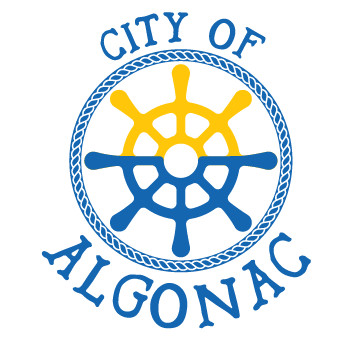Storm Water
Storm Water
The City of Algonac is authorized to discharge stormwater from its Municipal Separate Storm Sewer System (MS4)--St. Clair--into the waters of the State, in accordance with the effluent limitations, monitoring requirements, and other conditions outlines in its National Pollutant Discharge Elimination System (NPDES) permit.The City's Department of Public Works is responsible for key maintenance activities essential to the proper functioning of the stormwater system. These activities include catch basin cleaning, street sweeping, outfall inspections and monitoring for illicit discharges.
As part of our ongoing commitment to protecting and enhancing our local waterways, we encourage public participation in the review and comment process for the City's Stormwater Management Plan. This plan outlines the strategies and actions in place to reduce pollution and improve water quality.
With the support and engagement of our residents, the City of Algonac can continue to safeguard our waterways--benefitting local marine life, recreational water use, and the preservation of clean drinking water sources.
We invite you to review the Stormwater Management Plan documents and provide your feedback to help us build a cleaner, healthier environment for all.
Algonac Illicit Discharge Detection and Elimination (IDDE) Policy
Algonac Stormwater Discharge Map
Algonac Public Education Plan
City-Owned Facilities Best Management Practices
Emergency Spill Response Plan
City of Algonac Standard Operation Procedures for City Operations and Maintenance
Enforcement Response Procedure (ERP)
Pollution Incident Prevention Plan (PIPP)
Stormwater Management System Operations and Maintenance Plan
Only Rain Down the Drain
While many of us think first of industries dumping chemicals as the source of water pollution, the truth is our water can also be harmed by things that we do every day at our homes. When it rains, water washes over lawns, sidewalks, and streets. In addition to litter, this water picks up chemicals found in lawn fertilizers, bacteria found in pet waste, and oil from cars. This polluted water then enters roadside ditches and the storm drains found in our streets, and large pipes connect the storm drains to the closest lake or stream.
Spring 2025 Newsletter - Proper Disposal of Pet Waste
Spring 2025 Newsletter - Fertilize Sparingly and Caringly
Educational Resources
General Information
Phone Numbers
(810) 794-3281
